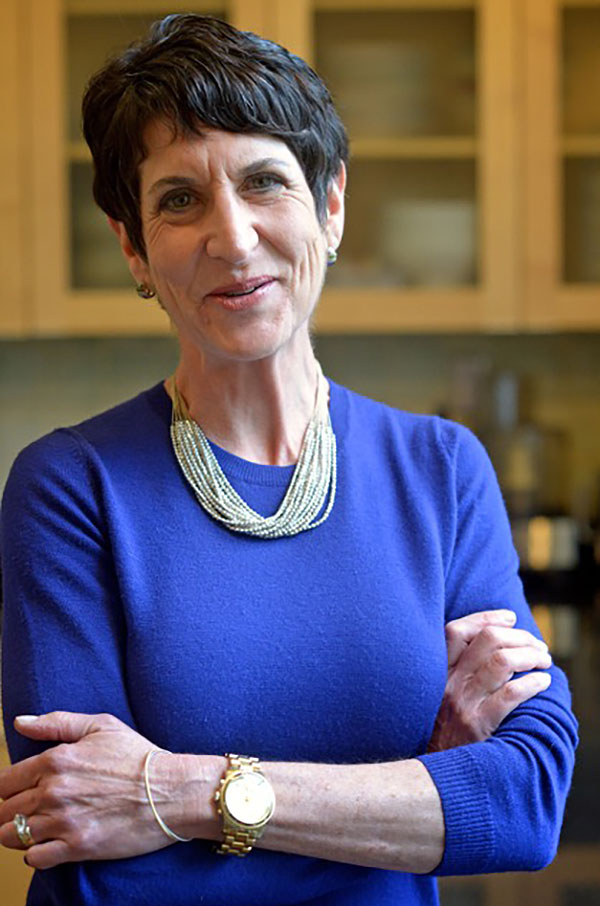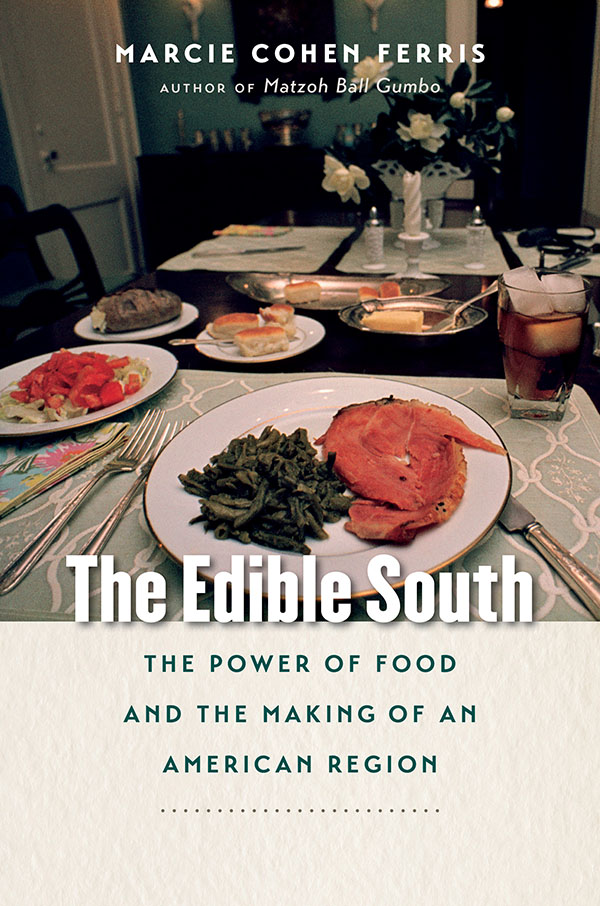Marcie Cohen Ferris: The Edible South
The Power of Food and the Making of an American Region
Marcie Cohen Ferris is a professor of American studies at UNC Chapel Hill and writes on southern history and culture, with a particular interest in the foodways and material culture of the U.S. South, the history of the Jewish South and American Jewish identity and culture. Cohen Ferris will speak on “The Edible South: The Power of Food and the Making of an American Region,” also the title of her most recent book, published in 2014 by UNC Press.
Cohen Ferris’s book and her talk will examine how food serves as a way to chronicle the South’s larger history from colonial settlements and antebellum plantations, to New South cities and Civil Rights-era lunch counters. Topics range from chronic hunger and agricultural reform to counterculture communes and iconic restaurants of the evolving South.
She is also the author of the award-winning “Matzoh Ball Gumbo: Culinary Tales of the Jewish South” (UNC Press, 2005), which was nominated for a 2006 James Beard Foundation Award. Currently, she is working on a multi-tiered project involving teaching, research and publication on “Carolina Cooks, Carolina Eats: Foodways of North Carolina,” as an exploration of the Tar Heel state’s vibrant and historic food cultures.
Cohen Ferris, along with her colleague Alice Ammerman (UNC’s Center for Health Promotion and Disease Prevention), co-chairs the University of North Carolina’s pan-university campus theme (2015-17), “Food For All: Local and Global Perspectives,” which is about advancing both campus and community engagement to address issues such as hunger, sustainable agriculture, food justice, entrepreneurial creativity and economic development.
This event is co-sponsored by the Department of English, the College of Arts and Sciences, the Humanities Council, the Center for Appalachian Studies, the Department of Anthropology, the Department of Cultural, Gender and Global Studies, and the Blowing Rock Art & History Museum (BRAHM).
About the College of Arts and Sciences
The College of Arts and Sciences (CAS) at Appalachian State University is home to 17 academic departments, two centers and one residential college. These units span the humanities and the social, mathematical and natural sciences. CAS aims to develop a distinctive identity built upon our university's strengths, traditions and locations. The college’s values lie not only in service to the university and local community, but through inspiring, training, educating and sustaining the development of its students as global citizens. More than 6,800 student majors are enrolled in the college. As the college is also largely responsible for implementing App State’s general education curriculum, it is heavily involved in the education of all students at the university, including those pursuing majors in other colleges. Learn more at https://cas.appstate.edu.
About Appalachian State University
As a premier public institution, Appalachian State University prepares students to lead purposeful lives. App State is one of 17 campuses in the University of North Carolina System, with a national reputation for innovative teaching and opening access to a high-quality, cost-effective education. The university enrolls more than 21,000 students, has a low student-to-faculty ratio and offers more than 150 undergraduate and 80 graduate majors at its Boone and Hickory campuses and through App State Online. Learn more at https://www.appstate.edu.


